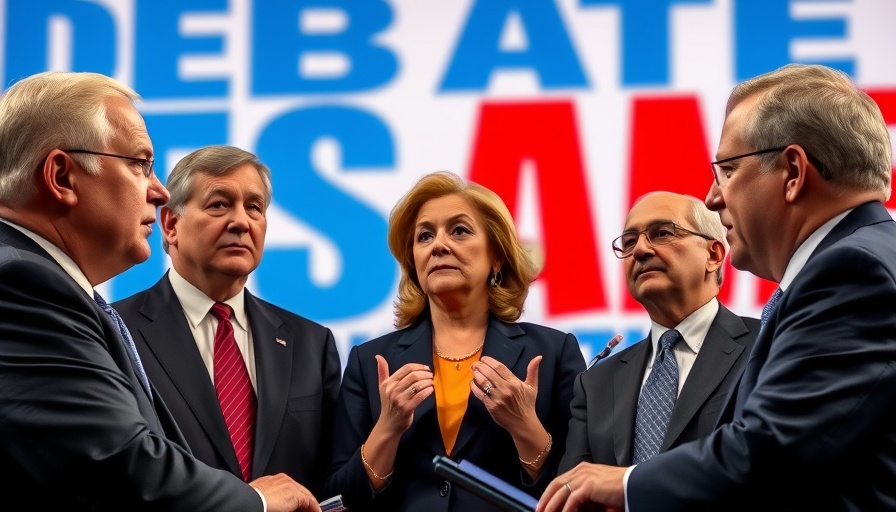
The UK-US Trade Deal: A Miscalculated Risk?
The recent trade agreement between the UK and the US has sparked significant discussions among economists and political analysts alike. Joseph Stiglitz, a Nobel Prize-winning economist, voiced strong concerns about the implications of this deal. According to him, the move reflects a broader strategy by the US under Trump's administration—a strategy of "divide and conquer" aimed at persuading weaker nations into unfavorable negotiations.
In ‘Nobel-prize-winning economist says US trade deal was a mistake for UK’, the discussion dives into the implications of the recent UK-US trade agreement, exploring key insights that sparked deeper analysis on our end.
Understanding the Global Trade Landscape
Stiglitz’s analysis highlights a crucial point: the multilateral trade landscape is not dictated solely by small agreements but is fundamentally shaped by larger economic principles. The imbalance in savings and investment rates between the US and other nations, particularly in light of the Trump administration's policies, may exacerbate global trade deficits despite the supposed advantages of local deals.
Political Pressure and Economic Consequences
Stiglitz pointed out that while the UK government might argue they had no choice but to secure this deal, they could have opted to negotiate collectively with the EU. This point raises important questions about collaboration against global economic giants, and the fear of potential tariffs driving independent action. Recent negotiations have instead revealed an unsettling trend—countries like China have chosen to resist pressure and retaliate, enhancing their own bargaining positions.
Trade-offs and Future Predictions
Furthermore, Stiglitz noted that the immediate consequences of these trade agreements could lead to higher prices for consumers and a slowdown in economic growth—a dangerous combination known as stagflation. As inflation rises, Britons might soon feel the squeeze at supermarkets and retailers. Stiglitz explains that the longer-term effects entwine tightly with the unresolved issues like tariffs on pharmaceuticals and digital goods—a reflection of the unresolved nature of many deals.
Emotional Investment in Economic Policy
Stiglitz's observations evoke strong emotional reactions among everyday citizens: the worry about rising costs, losing jobs, and the general uncertainty of what these deals mean for the average family. The trade agreement may have appeased some political egos but at what cost to the consumer and the broader economy? This is not just a matter of economics; it touches on the quality of life directly experienced by UK families.
Why This Matters: A Call for Awareness
For budget-conscious individuals in the UK, this trade deal could signal tougher days ahead as families grapple with rising costs. The economic landscape is shifting, and understanding these changes is vital. As Stiglitz points out, agreeing to a “worst form of managed trade agreement” rather than engaging in robust negotiations reflects the precarious position the UK now occupies.
Actionable Insights for UK Families
Given this context, it’s crucial for families to stay informed and proactive. Monitor grocery prices, fuel costs, and find local resources to assist in budgeting. The volatility in trade could lead to unexpected expenses, so adaptive budgeting strategies will become key. Utilizing frugal living strategies, like meal planning and local sourcing of goods, can help mitigate some of these rising costs.
In conclusion, the UK-US trade deal may appear beneficial at first glance, but Stiglitz’s insightful critique highlights the potential pitfalls and tactical errors inherent in such a rapid negotiation. Families should prepare for economic adjustments ahead and remain aware of how international policies may directly impact their finances.
 Add Row
Add Row  Add
Add 




 Add Row
Add Row  Add
Add 

Write A Comment